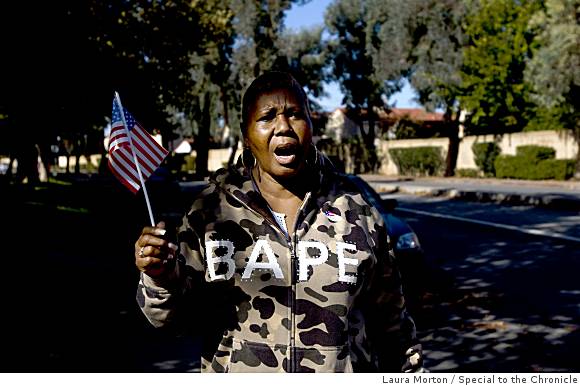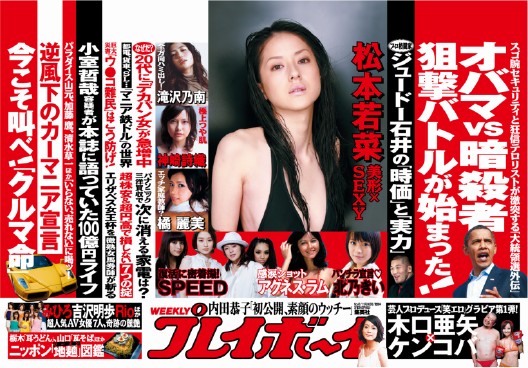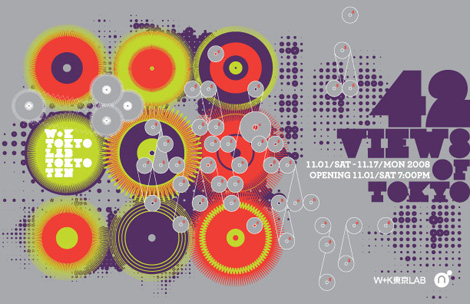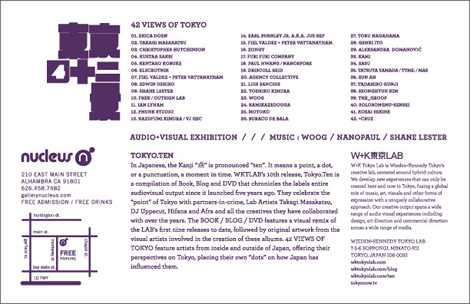COMICS REVIEW / Translation bat-mangled in ‘Bat-Manga!’
This review is pretty damning of the new book Bat-Manga!: The Secret History of Batman in Japan . Translation was either totally botched or intentionally rendered as bad English. The original manga artist’s name is basically nowhere to be found on the cover.
. Translation was either totally botched or intentionally rendered as bad English. The original manga artist’s name is basically nowhere to be found on the cover.
I was watching some Mahha Go Go Go last year on Japanese cable and realized that at least half the reason this particular anime struck me as so “strange” as a kid was the fault of the American localizers, who stuffed very reasonable and almost Zen scenes of no dialogue with mile-a-minute narration and unnatural speech patterns. Seems like something similar is going on with the Batman book: the Orientalization of Japanese culture requires everyone to pitch in. The source material may be slightly “off” by Western standards, but it’s the foreign localizers who really amp up the eccentricity in the material. They are like the enablers of “crazy Japan.”
(Hat tip to Matt Alt for sending the article my way.)
W. David MARX
January 17, 2009
Comments (15) | Posted in Links
This is the most ridiculous article ever:
Trouble feared as gang moves HQ few blocks from enemy’s
Let’s replace a few key nouns and read it with a non-Japan perspective:
The Metropolitan Police Department announced Wednesday that a violent drug gang and extortion syndicate has moved its headquarters from Queens to Times Square, about 250 yards from a rival violent drug gang’s headquarters.
According to the MPD, the Times Square building in which the drug gang’s headquarters is housed was purchased by an affiliated firm of the gang organization in September together with its land lot. The firm’s president is a senior drug gang member.
According to the MPD, starting Wednesday, Times Square Police Station deployed patrol cars at a parking lot in front of the Times Square building and station several policemen in the area around the clock as an emergency measure.
The drug gang in question is the nation’s third-biggest designated crime syndicate, after two other large drug syndicates.
The rival drug gang’s headquarters is located in a condominium about 250 yards northeast of the new drug gang headquarters building. The rival drug gang claims areas around its headquarters as its operating territory.
The MPD will establish a panel designed to remove gang organizations with the participation of local residents and corporate representatives on Jan. 21 in an attempt to remove gangs from the district.
The MPD believes tension between the two groups could rise as drug gang relocated its headquarters to the Times Square building.
MPD sources said that a senior drug gang member told an MPD investigator who was monitoring a New Year meeting of drug gang in New Jersey on Wednesday that the gang had started to use the Times Square building as its headquarters starting that day.
According to the MPD, the affiliated company bought the land and building from a real estate company in New Jersey in early September.
The land measures about 100 square yards, and the building has a floor space of about 260 square yards, covering three stories and a basement.
According to the property register book, no mortgage was taken out on the land and the 18-year-old building, which a real estate company in the area estimated that the gang likely spent about $3.2 million to acquire.
W. David MARX
January 8, 2009
Comments (22) | Posted in Links
New Yorker: I ♥ NOVELS
Japan-based bloggers, magazine writers, and newspaper correspondents: give up your day jobs (present writer included). We all just got schooled by New Yorker staff writer Dana Goodyear, who has written the best English article so far on the keitai shosetsu “cell phone novel” phenomenon. Two months in Japan was apparently all it took to hit all the important angles and catch 1,000 struggling Japan hands with their pants down.
A few points:
1) The keitai novel phenomena clearly links to the “yankii-zation” of Japanese pop culture. Not a new idea, but maybe the most important basic concept to explain what is going on right now in almost all cultural fields, especially fashion and music. ヤンキー=短絡的思想. Japanese pop culture is, and has always been, all about socioeconomic class, who has power, who sets tastes. The upper middle class have been totally defeated in the realm of mass culture. Or they’ve retreated to some new space.
2) Goodyear does a pretty good job of making the ubiquitous author anonymity seem legitimate: authors are embarrassed about their work, even if successful.
3) Democratization of culture means more and more creators with “non-artistic” goals who create for personal satisfaction/catharsis but whose work, through the process of the market structure, becomes equalized in format to the old style of creator who had the traditional “artistic” reason to create. Yoshimoto Banana saying that keitai novels aren’t novels is not snobbery, it’s proper classification of motive and content.
W. David MARX
December 23, 2008
Comments (11) | Posted in Links
Japan Probe: Man found guilty of sharing copies of foreign movies before their Japan release date
Two years in prison for fansubbing! I always wondered why Japanese bilinguals never added subtitles to movies that come out on DVD before they are even released in theatres in Japan, and here’s the answer: the government throws you in jail for two years. I guess that’s one way to stop piracy.
W. David MARX
December 17, 2008
Comments (10) | Posted in Links
Hitler on Japanese TV (Hello Project Meets Hitler)
Young female idols from Hello! Project (Morning Musume, etc.) teach the Japanese television audience everything they need to know about 20th century German dictator Adolf Hitler. Did you know that he had a complex about his height??? Giggle, giggle, giggle.
W. David MARX
December 10, 2008
Comments (2) | Posted in Links
Ex-Gravure Idol Uncovers the ‘Dating Club’ in Japanese show biz world
There are two classic taboo rumors about the Japanese entertainment industry. The first is that organized crime runs the artist management business. There is a lot of evidence to back this up — convicted tax-evading jimusho bosses claiming the need for “underground financing” in the courtroom, bullets fired into management company windows, a well-known historical precedent for entertainment being a yakuza racket, Misora Hibari’s manager being a member of the Yamaguchi-gumi, etc., etc. But if you are a television network or publishing company dependent upon the very same entertainment companies to provide celebrities to attract viewers and readers, you are not exactly going to start blabbing about anything sinister. The entertainment companies are not dumb either, working at all costs to preserve the “wholesome” image. Who would think that the mob runs an industry where smoking a cigarette at age 19 can end your career as an idol?
The other persistent rumor is that model agencies — especially for gravia idols — prostitute their employees off on the side. A lot of the lower-ranking and newer idols must pay for their own dancing and singing lessons and are allegedly introduced to possible “buyers” by management company employees to secure an extra source of income. There are also apparently hostess clubs directly managed by the modeling agencies where up-and-coming talent can meet television executives and other powerful figures. In the past, there has been a lot of “Marxy, you are paranoid and crazy” in regards to my belief in this gossip. (And not just on this blog. My friend was pounding me on this just yesterday evening.)
Kohinata Minako Komukai Minako’s recent confession to these practices, however, is a huge leap forward for anyone wanting to pull back the curtain. I seriously doubt the story will get any legs — any talk of prostituting idols is still a massive taboo in the media, and almost no one has any stake in making the cheery idol business look seedy. Idols are the public face of many respectable businesses and government bureaus, so exposing the dark side of the industry is not just a hit for the management companies, but a hit for the entire Japanese national tatemae.
Many people often think, who cares where the money comes from? These revelations, however, show exactly why organized crime probably should not be free to hold the reigns to the pop cultural industries. They have too much temptation to milk as much money from their employees in any way possible, with basically no chance at legal recourse from their labor. And when the guys who run artist management companies and the guys who run brothels are in the same “fraternal organization,” crossover seems like an obvious occurrence.
W. David MARX
November 18, 2008
Comments (40) | Posted in Links

I watching was the video podcast of (uncompromisingly-liberal) PBS program Bill Moyers’ Journal, and in a segment called “Changing Times” about the Obama victory in the context of the civil rights struggle, Moyers told the story of Johnnie Marie Ross — an African-American woman who attended Martin Luther King Jr.’s funeral and voted for Obama.
The visuals cut to a picture of an article about Ross from the San Francisco Chronicle, and in the main photograph, the current Ross is wearing a (possibly fake, possibly real) BAPE camouflage hoodie. Talk about progress for Japanese street fashion!
W. David MARX
November 14, 2008
Comments (6) | Posted in Links
日本のWikipedia編集回数ランキング、アニメ・漫画が上位独占
I didn’t think I would be the first one to link to this article. (Update: Defeated by Danny Choo, who probably made $100 on his site while I type this sentence. Maybe I should have added a picture of impossibly-chested cartoon women…)
Basically, somebody compared the most-edited pages within the Wikipedia English, Wikipedia French, and Wikipedia Japan sites, and haha, the top five for Japan were all anime/manga related. Number one in the U.S. was George W. Bush — a politically controversial figure. Number three in France was Algeria — I heard France had a slightly-controversial colony there. (Update: M-Bone pointed out that I am an idiot and forgot that Algerians use French.) Japan’s only real historical topic comes at #14 — World War II. Despite the heavy internal debate on that war within Japan, everyone using the net is much more interested in fixing minutiae about cartoons.
It would be easy to show this ranking as proof that Japanese minds are more obsessed with pop culture than national issues, politics, or ideology, but my guess is that this mainly reflects the still low cultural penetration of the internet in Japan. I know that stats rarely bear out this statement of mine — broadband usage is through the roof! etc. etc. — but I don’t think your average Joe in Japan (城氏?) is as dependent upon internet resources for daily information retrieval as in the U.S., for example. I can’t put my finger on it, but something in Japan still feels like the U.S. internet circa 1998, when it was only good for looking up the master timeline to the Macross series and guitar chords to They Might Be Giants songs.
Let’s make an index: the number of Wikipedia pages in a language divided by the numbers of speakers of said language times 100. Japanese ranks very low (.38) — way below Dutch (1.6) and Polish (1.2). Those who do use Wikipedia in Japan are early adopters, much more likely to be nerds. It’s the John Locke vs. John Locke syndrome. But at least other countries have internal domestic policies in constant debate to challenge the nerd quotient.
Another interesting bit: number eight in Japan is the “complete list of adult video stars.” I guess people are constantly adding names. Certainly suggests that the reference site is used by a lot of men — who have a lot of time to dedicate to editing porn trivia.
W. David MARX
November 13, 2008
Comments (21) | Posted in Links
In our last mega-battle over a certain Japanese magazine’s gleeful front-cover commercialization of a 14 year-old girl’s sexuality, I got mega-schooled at the very end by an anonymous commenter who dropped some names of other exploited low-teen girls back in the ’80s, who through a naive google image search, led to some of the most frightening images possibly lurking on the internet today. Okay, so this “let’s lust after real-life elementary school girls, everyone” thing is not new to post-war Japan. I concede that point.
But I do not retract my hate of Weekly Playboy, and this month’s cover story reminds me why they are so very, very terrible. While the rest of the world celebrates the nobler parts of the human community in the wake of Barrack Obama’s election, assholes at Playboy frame everything this way:

Obama vs. The Assassins: The Sniper Battle Has Begun!
Super classy, guys. Framing what would be the tragic murder of the U.S.’s brand new hope-inspiring African-American president as a sensational action movie plot.
Weekly Playboy is published by a mainstream publisher, but, it’s fair to say, does not represent the views of “mainstream Japanese.” That being said, Playboy does represent a certain “taste culture” that exists in Japan: let’s call it the “Asshole Faction.” Of course, they are jingoist anti-Asians, but I want to also point out that these 30 year-old angry dudes love child pornography, prostitution, and any other forms of institutionalized, social class-exploiting misogynistic services like adult video and hostess clubs. Maybe it’s only my imagination that there are still people out there who equate Japan’s enormous “sex business” with a progressive morality that transcends prudish “Christian” ethics, but if you are one of these people, deal with the fact that no one loves the Japanese sex business more than the Asshole Faction. It gives them something to do when not anticipating the assassination of the American president.
W. David MARX
November 11, 2008
Comments (70) | Posted in Links
McDonalds closed their Omotesando location a few weeks back and replaced it with a big sign reading TOP SECRET and a silly foreigner in ill-fitting black suit and bad sunglasses. (He was the bodyguard.)
Today, two mysterious new restaurants opened in Shibuya and Omotesando called Quarter Pounder offering only two options: a Quarter Pounder with Cheese meal set and a Double Quarter Pounder with Cheese meal set.
‘Tis McDonalds behind the scheme, of course. Perchance they wanted a more interesting way to bring the iconic American hamburger variety to Japan instead of just throwing it on the menu next to the MacFlurry. My guess is that long lines will form, sucking the energy from H&M and Krispy Kreme. So much excitement for the most ubiquitous fast food chain already dominant in Japan! Viral marketing will probably work this time around, and judging from the Néojaponisme-esque limited color palette of black and red, probably did not even cost so much to do.
W. David MARX
November 4, 2008
Comments (43) | Posted in Links
Wow. Chin Music Press’ excellent book Art Space Tokyo received an absurd and highly questionable review in the latest issue of Metropolis. Riddled with racial/cultural stereotypes of Japanese and dismissive of the opinion of foreigners involving themselves in Tokyo’s fine art world, it upholds Metropolis’ reputation for stellar journalism. Read it here.
AST editor Ashley Rawlings retorts at length in this infinitely more worthwhile blog post on the excellent AST website. Ashley politely pulls his punches aimed at reviewer C.B. Liddell while eloquently pointing out the numerous stereotypes and gross assumptions made in Liddell’s article.
I’m biased, as I wrote one of the dismissed essays in the damn book, but Liddell’s review strikes me as the work of a college freshman’s stab at homework for Journalism 101. Some striking concepts within:
Popular=Good
Tokyo=Ugly
Japanese =Inherently artistic
Apparently, foreigners are inherently less artistic, and if one is to paraphrase some of Liddell’s earlier work, less cute as well.
The whole review is trite and suffers from a myopic view of culture at large, not to mention a very short-sighted perspective on contemporary art in Japan.
Oh, and there are grammatical errors throughout.
Ian LYNAM
October 21, 2008
Comments (6) | Posted in Brief Thoughts, Contributor, Ian, Links, News, References, Staff News
Give it to Uniqlo for being one of the few Japanese retailers seeing growth and one of the few big companies continuing to trickle-down money to innovative foreign artists.
http://ut.uniqlo.com/ztt
Uniqlo’s UT T-shirt line has revived graphics from the iconic ’80s label Zang Tumb Tuum (ZTT) Records. Now you can finally get a Frankie Goes to Hollywood shirt that doesn’t say RELAX.
A quote from Sunahara Yoshinori at the bottom!
W. David MARX
October 15, 2008
Comments (3) | Posted in Links


Marxo and I have work in the upcoming WKTokyoLab show in Los Angeles at Gallery Nucleus. The exhibition is centered around the artwork and writing created for WKTokyoLab’s new book + DVD set, Tokyo.Ten. The exhibition is on November 1st at 7pm.
It’s rare that WKTokyoLab stuff makes it to LA, so for folks curious about some of the more innovative image-making coming out of Tokyo these days, this is a great sampler.
Comments Off | Posted in Brief Thoughts, Ian, Links, Marxy, News, Staff News
Mild-mannered Sgt Tanuki has just published a slew of great posts reviewing the last five years’ worth of Akutagawa Prize winners. He also goes ahead and reviews whatever filler got included with each winner to round out a hardback book for publication. That’s classy.
Comments Off | Posted in Links
Tokyo: A local’s view
You may have heard of this guy Jean Snow. He is on the Néojaponisme masthead.
Group Sounds (Japanese 1960s music) movie trailer
Japanese pop movies all look (and often are) uniformly bad, but this one seems like fun. I like Group Sounds a bit although I think people overestimate its impact on Japanese pop culture of the era. These guys weren’t really “the Beatles of Japan,” since most Japanese also listened to the Beatles and knew that the Tigers or Spiders couldn’t really hold a candle. The old saying went, in a family, the older brother listened to the Beatles, the older sister listened to the Monkees, and the little sister listed to Group Sounds. But yeah, the costumes and typography were great. And this movie actually dug up Tsutsumi Kyohei to work on the music.
DJ Ozma and Tunnels dress up as black women
Sometimes the jokes are so lame that you don’t even get around to worrying about the identity politics.
W. David MARX
October 2, 2008
1 Comment | Posted in Links
. Translation was either totally botched or intentionally rendered as bad English. The original manga artist’s name is basically nowhere to be found on the cover.








